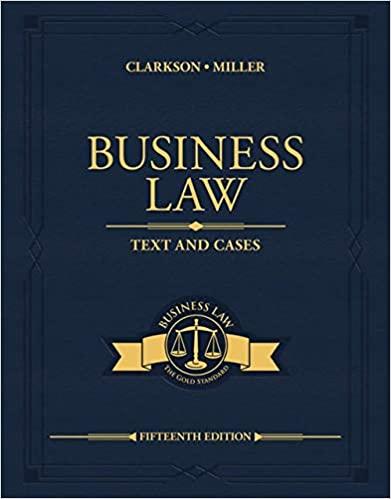Scott Caldwell worked for UniFirst Corporation under an employment agreement with an arbitration clause. The agreement provided
Question:
Scott Caldwell worked for UniFirst Corporation under an employment agreement with an arbitration clause. The agreement provided that either party could avoid arbitration by seeking an injunction—but only the employer could obtain this relief without showing that any actual damage had been done. When a lumbar disc protrusion caused Caldwell severe pain, his physician ordered him to take eleven days off work and then return to light duty. Caldwell’s supervisor called the need for time off “unacceptable” and disregarded the request for accommodation, continuing to assign Caldwell physically strenuous tasks. After Caldwell underwent surgery, his physician informed UniFirst that Caldwell could return to work full time without restrictions. Instead of allowing Caldwell to return to work, UniFirst fired him. In Caldwell’s subsequent suit against the firm, a state court refused to compel arbitration. The court held that the employment agreement’s injunction provision rendered “illusory any promises to arbitrate.” [Caldwell v. UniFirst Corp., ___ S.W.3d ___, 2019 WL 1445220 (Mo. 2019)] (See Agreements That Lack Consideration.)
(a) Apply the IDDR approach to evaluate the ethics of the employer’s responses to Caldwell’s medical problems.
(b) From an ethical perspective, review UniFirst’s decision to include the injunction provision in its employment agreement.
Step by Step Answer:

Business Law Text And Cases
ISBN: 9780357129630
15th Edition
Authors: Kenneth W. Clarkson, Roger LeRoy Miller





